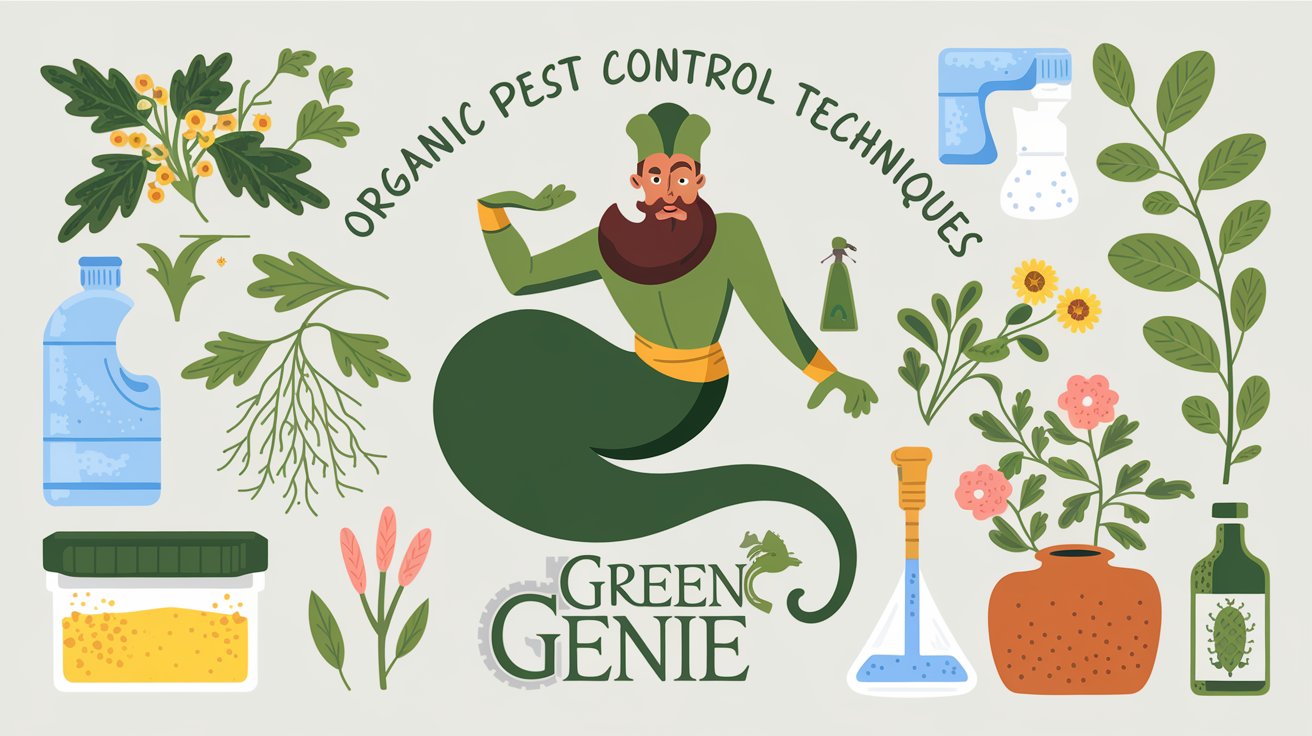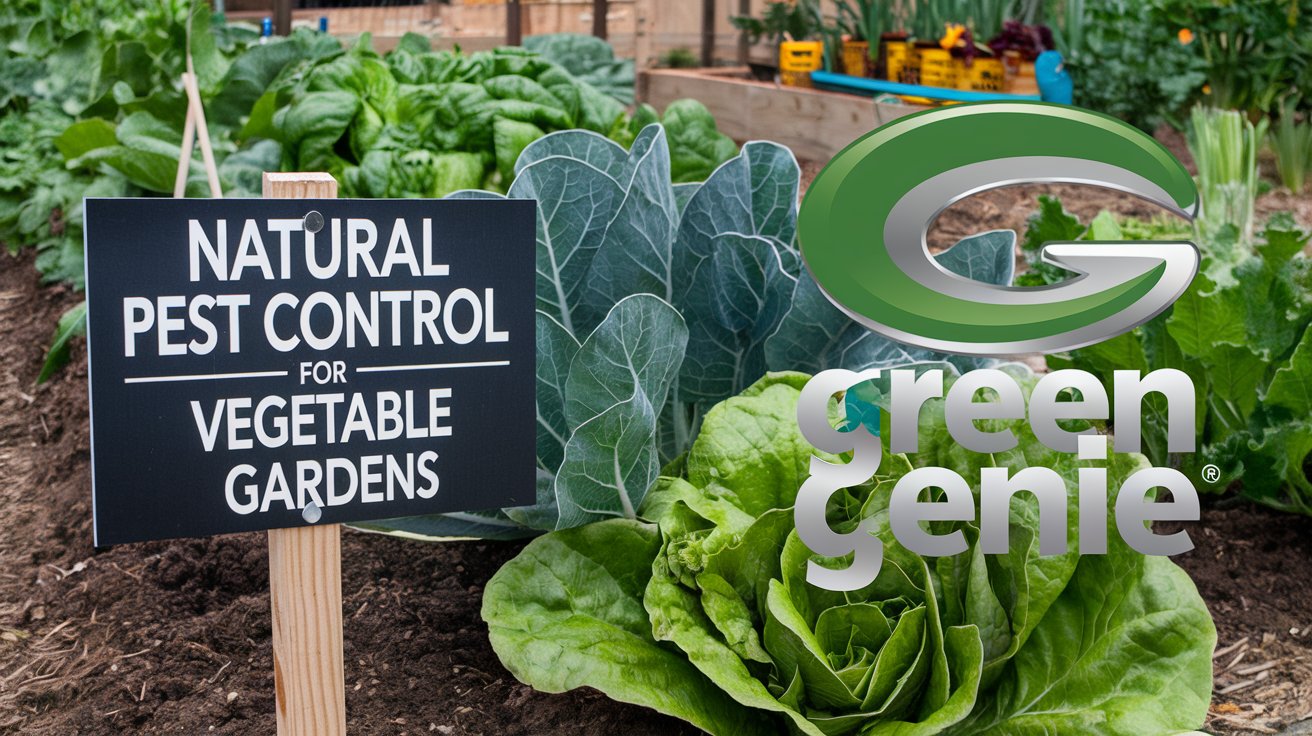Table of Contents
ToggleNatural Pest Control for Vegetable Gardens
Natural pest control for vegetable gardens is becoming increasingly popular as more gardeners adopt sustainable practices. Unlike chemical pesticides, natural pest control not only safeguards plants but also protects the ecosystem. Here are several methods for managing pests organically, promoting better health for your garden while minimizing harm to beneficial insects and the environment.
Understanding Pest Dynamics
Before exploring natural pest control methods, it’s essential to understand the dynamics of pests in your garden. Pests can be categorized into three primary groups:
- Insects: This group includes harmful insects like aphids and beetles, as well as beneficial ones such as ladybugs and pollinators.
- Mollusks: Snails and slugs can be particularly problematic in wet conditions.
- Rodents and Birds: These animals feed on seeds and seedlings, causing significant damage to your crops.Natural Pest Control for Vegetable Gardens
Identification of Pests
Effective pest control begins with proper identification. Observe your plants closely and note any signs of pest activity, such as chewed leaves or sticky residues. Understanding the life cycles and behaviors of these pests will help you develop the right control strategies.
Organic Pest Control Techniques 
Natural Pest Control for Vegetable Gardens Here are some natural pest control methods to try in your vegetable garden:
-
Companion Planting
Companion planting involves growing certain plants together for mutual benefit. Examples include:- Marigolds: These vibrant flowers deter nematodes and aphids.
- Basil: Planting basil near tomatoes can repel thrips and hornworms.
- Nasturtiums: These attract aphids away from your vegetables, acting as a trap crop.
-
Encouraging Beneficial Insects
Creating a habitat for beneficial insects is key to organic pest control. Consider planting:- Dill: Attracts ladybugs and lacewings that prey on aphids.Natural Pest Control for Vegetable Gardens
- Fennel: Draws beneficial insects and provides nectar.
- Sunflowers: Their height offers resting spots for predatory insects.
-
Physical Barriers
Physical barriers can help keep pests away from your plants. Options include:- Row Covers: Lightweight fabric can protect seedlings from insects while allowing sunlight and moisture in.
- Netting: Bird netting can deter birds and larger pests.
- Copper Tape: Effective against slugs and snails when placed around garden beds.Natural Pest Control for Vegetable Gardens
-
Homemade Sprays
Many gardeners successfully use homemade sprays to deter pests.Here are a few recipes:
- Garlic Spray: Blend garlic cloves with water, strain, and spray on affected plants. The strong odor repels many pests.
- Soap Spray: Mix a few drops of liquid soap with water to create a solution that suffocates soft-bodied insects like aphids.
- Pepper Spray: Blend hot peppers with water, strain, and spray on plants. The heat deters pests without harming the plants.Natural Pest Control for Vegetable Gardens
-
Crop Rotation

- Rotating crops each season disrupts pest life cycles. Many pests are specific to certain plants, so changing their food source can help reduce populations. This strategy not only minimizes pest issues but also enhances soil health.
-
Healthy Soil Practices
Healthy plants are more resilient to pests. Focus on improving soil health through:- Composting: Adding organic matter boosts fertility and soil structure.
- Mulching: Helps retain moisture, suppress weeds, and maintain soil health.
- Soil Testing: Regular testing determines nutrient needs, allowing you to address deficiencies.
- Trap Crops
Trap cropping involves planting a crop that pests prefer over your main vegetables. For example, growing mustard or radishes can lure aphids away from prized plants, making it easier to manage the pests.Natural Pest Control for Vegetable Gardens
Monitoring and Maintenance
Regular monitoring of your garden is crucial for effective pest control. Look for signs of pest activity and act quickly to address any problems. This proactive approach can mean the difference between an infestation and successful management.
- Regular Inspection
Conduct weekly inspections of your plants. Check the undersides of leaves, stems, and soil for signs of pests. Keeping a garden journal can help you track changes over time. - Use Sticky Traps
Yellow sticky traps can capture flying insects like fungus gnats and whiteflies. Placing these traps around your garden allows you to monitor pest populations and track changes effectively.
Conclusion:
Managing a healthy vegetable garden requires implementing natural pest control methods. These practices foster a thriving ecosystem around your vegetables, attracting beneficial insects and wildlife. Patience and observation are key; the true benefits will manifest over time.

